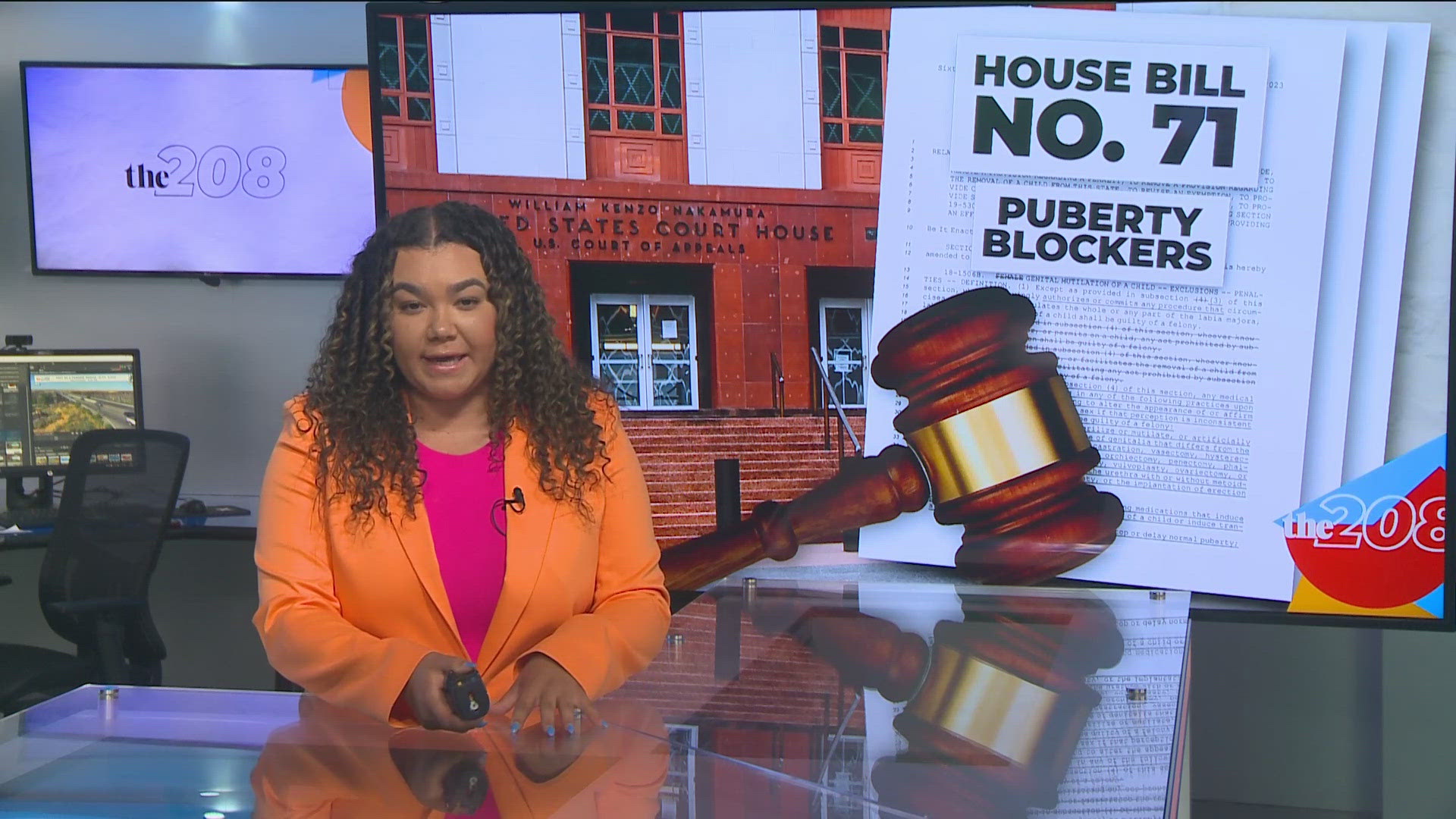BOISE, Idaho — On Wednesday, the Ninth Circuit Court of Appeals heard arguments from both sides of the Poe v. Labrador lawsuit.
The case pertains to House Bill 71, which was passed in the 2023 legislative session and signed into law by Gov. Brad Little in April 2023.
In his transmittal letter explaining why he signed the bill, Gov. Little wrote, "We should take great caution whenever we consider allowing the government to interfere with loving parents and their decisions about what is best for their children."
HB71, also known as "The Vulnerable Child Protective Act," makes it illegal for Idaho doctors to provide puberty blockers or hormone therapies to teenagers who identify as transgender. It also outlaws gender-affirming surgeries for minors, which isn't something that happens in Idaho anyway.
The law was supposed to go into effect at the beginning of 2024, but two Idaho families filed a lawsuit, arguing that they don't agree with the government making medical decisions for their children. The lawsuit put the law going to effect on pause, temporarily, until the lawsuit finished.
Arguments began with Defense Attorney John Burush, who is representing the state of Idaho, stating that gender-affirming treatments are "experimental and carry heavy risks."
One of the Judges pushed back and said gender-affirming treatments can be beneficial, specifically for people with gender dysphoria. And that the treatments can make them "feel more comfortable" and improve their mental health.
While acknowledging what the judge pointed out, Burush defended his statements that harm can come with these treatments, implying the bad outweighs the good.
"For a girl who has cancer, breast removal for a girl who has cancer versus one who wants to appear like a boy... very different reasons for that medical treatment," Burush said.
Following Burush, the prosecution's attorney, Chase Strangio, representing the families who sued, gave their statement.
He said the law forces kids and teens to live a life untrue to how they identify and causes "significant harm to them" and their mental health.
"There is a young woman at the core of this case and she like many other individuals experienced tremendous lifesaving benefit from this treatment and the district court made factual findings to those points of the benefits for this care," Strangio said.
The court also heard from the U.S. Department of Justice spoke, objecting the bans on behalf of the Biden-arris Administration.
KTVB reached out to the office of Attorney General Raul Labrador who said the following in an email Wednesday afternoon:
“The devastating consequences of drugs and procedures used on children with gender dysphoria are a preventable tragedy. The state has a duty to protect and support all children, and that’s why I’m proud to defend Idaho’s law that ensures children are not subjected to these life-altering drugs and procedures. Those suffering from gender dysphoria deserve love, support, and medical care rooted in biological reality. Denying the basic truth that boys and girls are biologically different hurts our kids. No one has the right to harm children, and we will do everything we can to protect them.”
The court has not published a formal opinion on the case as of 7 p.m. Wednesday.

